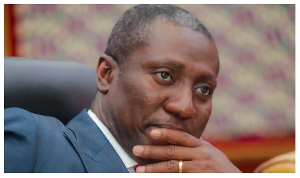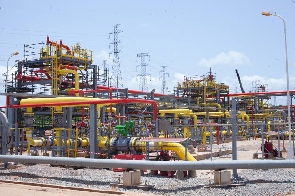Edwin Provencal, the Managing Director (MD) of Bulk Oil Storage and Transport (BOST), has highlighted the impact of transportation costs on the pricing of petroleum products in the country.
According to him, the current method of distributing these products via road transport significantly contributes to overall price build-up.
During a briefing with selected media personnel in Accra on BOST's progress in 2023, and future plans, Provencal emphasised that road transportation is the most expensive mode among those available, which include railways, barges, air, and pipelines.
He stressed that the cost associated with road transport has been a major factor in the increasing prices of petroleum products in the country.
Advocating for more cost-effective means of transportation, particularly to remote areas, Mr Provencal expressed the need for the use of pipelines.
He acknowledged the potential for savings by utilising cheaper modes such as pipelines as the way to go.
Updating on the company's progress, Mr Provencal mentioned that BOST's accounts have been audited up to date.
Originally incorporated in December 1993 as a private limited liability company under the Companies Act 1963 (Act 179), with the Government of Ghana as the sole shareholder, BOST has transformed from a debt-ridden entity to a profitable company, he highlighted.
Highlighting BOST's mandates, Mr Provencal mentioned three main objectives: developing and maintaining a network of facilities for bulk storage, building strategic reserves, and importing petroleum products.
However, he noted, that the company is currently only actively engaged in two mandates, as the strategic reserve aspect has been dormant.
He explained, as a result of the government's lack of interest in this direction, what BOST currently possesses is an inventory and the strategic levy for operations has remained at zero since 2028.
Click to view details



Business News of Sunday, 4 February 2024
Source: classfmonline.com
BOST advocates use of pipelines for transporting fuel to help reduce price
Opinions
















